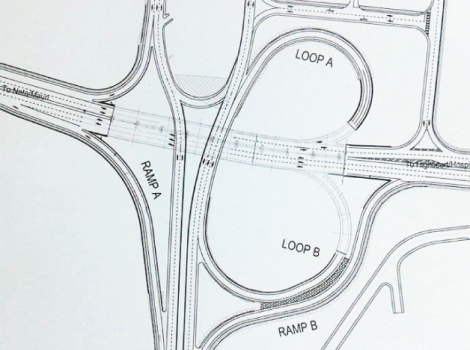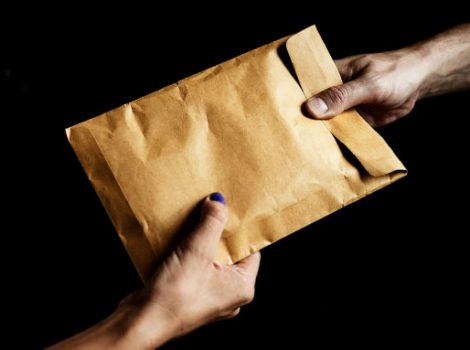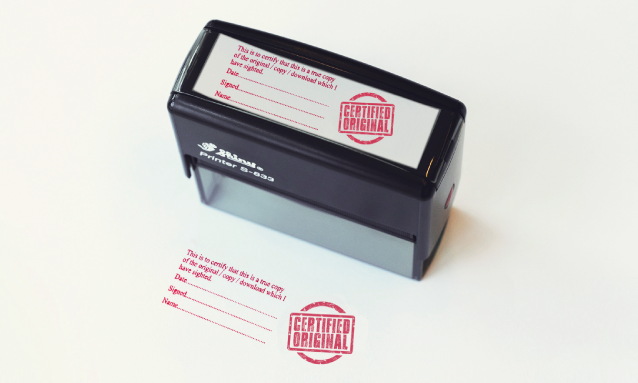
It was around a year ago I posted an article entitled “Botswana is NOT a paperless country” and it’s a subject close to my heart, as I don’t understand why we continue to waste so much paper. Botswana advocates many conservation projects and boasts some of the best eco-friendly tourism in the world. Earlier this year the Botswana Government imposed a ban on the use of plastic bags, yet the country still consumes and wastes tons of paper. While the rest of the world has found ways to reduce their paper consumption and uses technology to lessen the need for paper, Botswana still holds on to antiquated practices.
One of the main contributors to Botswana’s need for paper is the certification of documents. Almost every official process in Botswana requires endless certified copies of passports, omangs (identity cards), marriage certificates, utility bills, proof of earnings, proof of residency, qualifications and more, all of which contribute to the country’s paper waste. Of course, the requirement for these documents is warranted, but the actual certification, the frequency and the volume is unjustifiable. The persistent demand for certified copies has a knock-on effect, which makes life harder and obtaining certified copies can be problematic, time-consuming and expensive, lest we forget certified documents are only valid for 3 months.
Job applications
In many other countries, job applications commonly require the applicant to submit a cover letter and a CV. But in Botswana, applications have to include certified copies of IDs and qualifications. Botswana has a high rate of unemployment, so in some instances, there can be hundreds, if not thousands of people applying for just one job. That’s a whole load of paper that ultimately ends up in the bin. Not only is this a terrible waste, but what about the cost? It’s literally throwing people’s money away.
Most people applying for jobs are unemployed and have limited funds. There’s the cost of transport to get your documents certified, additional transport costs to obtain photocopies and the cost of paying for the photocopies. Then finally, there’s postage charges or further transport expenses to deliver the application by hand. These costs might seem insignificant to some, but when you exist on a budget where every thebe counts, these meagre costs have a negative impact.
Certifying foreign documents
Not that long ago you could go to any police station to certify all documentation for free, but due to people using bogus qualifications and false identities, this has changed. All foreign passports and qualifications gained at colleges and universities overseas must now be certified by the appropriate embassy, who charge for this service.
I was told The British High Commission charges P450 (approx. $45/£34) per certification, but other Batswana have said the charge is P350 (approx. $35/£27) per certification! It’s not really clear and there’s no relevant information on their website, but in any case, charging so much for the service is unreasonable. To put it into perspective, I pay around P300 per month to fill my tank with petrol. It’s not just a problem for British expats, many Batswana studied and continue to study overseas and those who studied in the UK are now subject to these extortionate charges.
Security
Are all these paper copies safe and secure? No, they’re not and this is another reason Botswana needs to seriously reduce its dependency on paper. Hard copies can “go missing” and this is sensitive, confidential information about individuals or businesses. It’s another reason other countries worldwide are fast becoming paperless. Junk mail for example in the UK can be stolen from external post boxes (or from the trash if not destroyed properly), as it contains enough information for a would-be thief to steal someone’s identity.
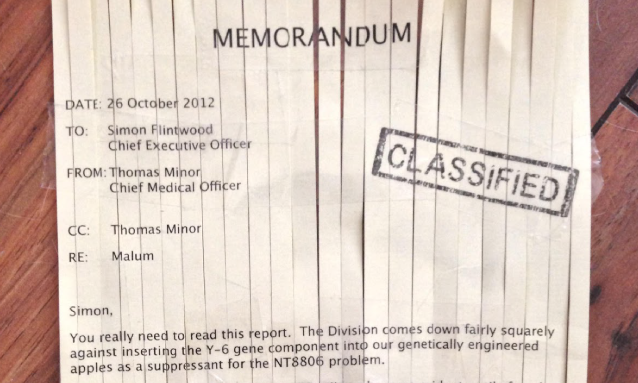
Shredding paper is supposed to be the most secure and sustainable way to dispose of documents and paperwork. Yet identity thieves will rummage through garbage searching for documents they can use. Strip-cut shredding is the least secure, as rotating blades cut strips that can easily be reconstructed by a determined and patient individual. I recently heard that some people are using discarded CVs to create false workforces. Many tenders in Botswana favour large companies, so individuals are using the CVs to fabricate workforces in order to win tenders under false pretences. Admittedly this is hearsay, I cannot confirm the source or check whether this rumour is true or not.
Possible solutions…
Many applications do genuinely require various supporting documents, but many organisations around the world appreciate the hassle and try to make these processes as easy and as flexible as possible for their customers. Many applications can be completed online and many countries accept self-certification or self-attested documents. This allows the owner of the documents to certify that the copies they are providing are true copies of the originals by signing them. Naturally, if they are found to be providing false information they suffer the relevant consequences, which could involve prosecution.
When I worked part-time at a Government office, part-timers had to submit three sets of copies of their time sheets, offer letters, contracts and their omangs/IDs to HR every month! Excluding the time sheets the rest was information HR already had on file, but two sets of these documents had to be submitted in order for us to get paid (the third set was kept by the employee). It’s nonsensical and incredibly wasteful.
So why not get into the practice of reusing documents that have already been certified? In the event paper copies are not destroyed then they are stored somewhere, but clearly, they are never used again. Many documents such as marriage certificates and qualifications don’t expire, so why does the certification expire?
In fact, why not use this as an opportunity to create jobs?
Government offices could recruit people to go through archives and scan all paper copies of important and/or certified documents then back them up on a computerised system? This could be a centralised system that every Government office has access to and can be shared with relevant personnel within the private sector, but on a ‘read only’ basis, as only elected Government employees can update the database. Botswana has such a small population; realistically it’s not impossible.
But Batswana need to change their mindset, as they can be stubborn and set in their ways. I lived in the UK for 13 years and applied for countless jobs during that time. In the UK you are encouraged to condense your CV into no more than two sheets of A4. This means you have to be economical with the information you provide and use appropriate sized fonts – not too big, not too small. If you submit this type of CV in Botswana it can be disregarded because the font is deemed too small. Ludicrous yes, but I know this because it did actually happen to me! Although font sizes aren’t mentioned in job advertisements, apparently the typeface has to be something like size 14 or more. This means a CV uses more sheets of paper than necessary just to satisfy someone with lazy eyes, who probably has no problem reading small fonts in the newspaper! You’ll also find many government communications unnecessarily waste paper because of documents being written using large fonts, and they don’t always print on both sides of the paper. It actually really irks me.
Botswana needs to embrace a smarter, more flexible and efficient way of working. Updating our practices in Botswana is a big challenge and many Batswana are reluctant to change.
Too many folk use the phrase “that’s how we’ve always done it” without thinking, is it the best way to do it?
Why do job applications require certified copies of anything? When applications are being assessed, surely the suitability of the applicants is based on the information contained within their CVs. Surely it’s ONLY the successful candidate(s) that needs to provide certified copies of their documents? If they can’t provide them they forfeit the job.
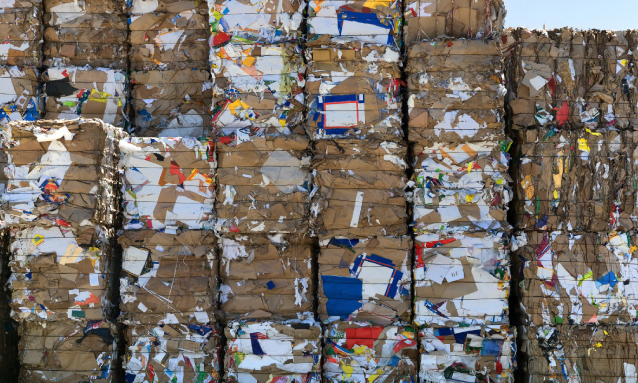
Yes, paper can be recycled, but at the end of the day, recycling paper is not enough. Much like our reduction of plastic usage, we need to also reduce our paper usage. By using less paper, we reduce our impact on deforestation; reduce energy use and climate change emissions. It also limits water, air and other pollution and results in less waste going to landfill. These are the actions of a progressive country and a modern approach. Offering flexibility with self-certified documents, if not reducing the need for them, enabling applications to be made online makes processes easier and that will make people happy… happy people are productive people. All these changes will make Botswana better and a better Botswana is more appealing to foreigner investors.
Here’s another perspective to consider, written by author and creator of Small Footprint Family, Dawn Gifford:
“Using less paper also helps ensure we use only our fair share of the earth’s resources. Think how much better the world would be if current levels of paper production were used to make books for schools in poorer nations instead of wasted on unnecessary office printouts and junk mail.”
What’s your take on the incessant need for the certification of documents in Botswana? How do you think the government could get around it? Please share your thoughts with YourBotswana.

